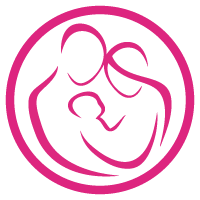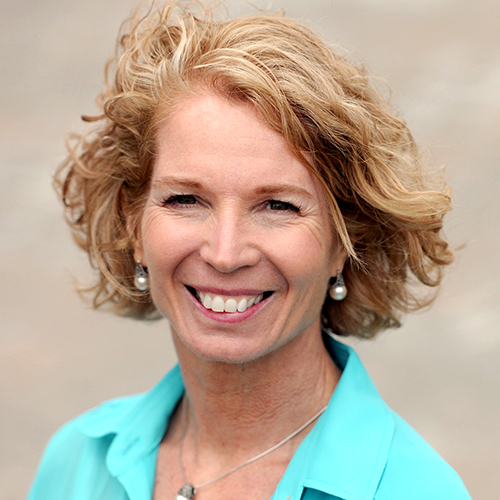 IBCLC Detailed Content Outline: Development and Nutrition / Infant Focused CERPs - Section I A
IBCLC Detailed Content Outline: Development and Nutrition / Infant Focused CERPs - Section I A
Access CERPs on Development and Nutrition / Infant for the IBCLC Detailed Content Outline recertification requirements. On-demand viewing of the latest Development and Nutrition / Infant focused IBCLC CERPs at your own pace.

Breastfeeding and Cranial Nerve Dysfunction – the what, who and why of Cranial Nerve Dysfunction in the newborn to precrawling baby

Michelle has been a pediatric neurodevelopmental Occupational therapist specializing in precrawling infants for over 26 years. She has specialty certifications and training in lactation, manual therapy, and pre and peri natal psychology. Michelle has specialized in optimal cranial nerve function and oral restrictions, with an emphasis on infant movement, innate biological imperatives and human potential, providing novel curriculums, support and resources for both professionals and parents. She enjoys collaborating and working in teams for babies and families going through the tethered oral tissues release process.
Topic: Breastfeeding and Cranial Nerve Dysfunction – the what, who and why of Cranial Nerve Dysfunction in the newborn to precrawling baby - [View Abstract]
Topic: Compensatory vs Novel Movements: 3 Keys for Babies With Tongue, Lip and Buccal Restrictions - [View Abstract]
Topic: Interoception: Beyond the Homunculus....The Real Sixth Sense and Its Primary Function as Sensory Input to the Autonomic Nervous System - [View Abstract]
Topic: The Vagus Nerve: Branchial Motor / Special Visceral Efferents: The Pharynx, Larynx, Soft Palate and one tiny tongue muscle - [View Abstract]
Topic: TummyTime!™ : A Therapeutic Strategy for Parents and Babies - [View Abstract]
Cranial Nerve Dsyfunction, CND, is a term used to describe a disruption, dysregulation or dysfunction in one or more cranial nerves in the precrawling period. Cranial Nerves are twelve, paired nerves, ten of which originate in the brainstem. They mediate all incoming sensory input and also help regulate, move and maintain the health of the muscles of the face, head, neck, jaw, tongue and throat. From sensing mother’s smell, touch, taste to rooting, latching and coordinating suck/swallow/breathe patterns, optimal cranial nerve function is paramount. Lactation consultants need to be able to identify CND, identify a couple of treatment interventions and know when to refer to appropriate health care professional such as OT, PT, Speech, or Manual Therapist/Bodyworker. CND explains how many tongue/lip tied babies who have had a frenotomy continue to struggle significantly with the activities and movements of optimal breastfeeding. Michelle will cover the basics of CND, a simple classification system, and her 4 Principle Functional Movement Protocol, which she states can optimize cranial nerve function in the precrawling baby and improve breastfeeding outcomes.

‘He Fought Like a Lion’: Using Trauma Resolution Approaches to Support Professionals and Families with Babies in the Neonatal Intensive Care Unit

Kate White is and award-winning craniosacral and massage therapist, prenatal and early childhood educator. She is trained in somatic therapies, prenatal and perinatal health, lactation, brain development, infant mental health, and has specialized in mother-baby dyad care using somatic prevention and trauma healing approaches for nearly 20 years. She is a mother of two children, holds a BA and MA in Communication, is a Registered Craniosacral Therapist in the Biodynamic Craniosacral method and a Somatic Experiencing® Practitioner. Her work combines somatic therapy with brain development to help give families with babies and small children the best possible start. She is Founding Director of Education for the Association for Prenatal and Perinatal Psychology and Health from 2013 – 2018 where she managed a large online educational program for professionals. She currently co-directs this program, administering an online program for parents and parent professionals, runs a private practice and offers her own seminars through the Center for Prenatal and Perinatal Programs, ppncenter.com.
Topic: Best Practices in Prenatal and Perinatal Psychology and Somatic Health for Optimal Birth Outcomes - [View Abstract]
Topic: Integration of the Science of Safety and Resilience into Perinatal Care: A 5 Step Process - [View Abstract]
Topic: The Science of Safety and Trauma Specific Recognition to Improve Birth Outcomes: What Does It Mean for the Midwife? - [View Abstract]
Topic: “It Was Right but so Wrong:” Helping Families Make Sense of Difficult Births with Trauma Sensitive and Prenatal and Perinatal Healing Approaches - [View Abstract]
Having a baby in the Neonatal Intensive Care Unit is one of the most stressful life events for a parent. The nervous system of babies and parents can go into survival mode, disrupting normal development, especially attachment and bonding. This presentation will detail the nervous system’s response to overwhelming births so that parents and professionals can better understand how to support themselves, their partners, parents and babies. Strategies for self-care and skills for increasing nervous system capacity for greater health will be presented. A successful story of reducing prematurity in a birth center will be presented.


Sejal is an International Board Certified Lactation Consultant (IBCLC) in private practice and an infant massage educator in Hillsboro, Oregon, USA. She combines her professional expertise with her personal instincts as a mother and a supportive team member.
She holds a Bachelors in Microbiology and Clinical Laboratory Science.
She also brings with her the following comprehensive toolkit: Certified Educator of Infant Massage, Formerly Certified in skin-to-skin care for full term infants from the United States Institute of Kangaroo Care Certified Provider of Innate Postpartum Care.
She has presented nationally and internationally for GOLD lactation, ILCA, community colleges, local lactation organizations.
As a lactation consultant, she believes that every individual needs to be educated about breast health, optimal infant feeding and how breastfeeding support is a basic human right and can impact world health globally.
She strives to help each family by continuing to learn all she can about breast health, breastfeeding ecology, breastfeeding movement and parent-infant connection using the neurobiological and infant mental health lens.
When she’s not with her clients, you can find her at home in Hillsboro, Oregon, USA, listening to bollywood music, hanging out with friends and spending time with her family.
Topic: Calm & Regulated: Rethinking Our Approach to Latch and Positioning - [View Abstract]
Topic: Teaching Infant Facial Massage to Parents to Support a Functional Latch - [View Abstract]
Evaluating feeding and observing babies at the breast is a big part of what lactation professionals do. The privilege to observe babies at the breast in private practice at a much slower pace has provided a unique observation opportunity. Each baby and parent dyad is unique and so are the challenges that come with it. The focus of this interactive workshop is to help participants become astute observers of the infant’s movements and posture before and during feeding. It will further enhance their clinical skills by looking at the big picture of how the infant's innate behaviors ensure harmonious breastfeeding ecology. This presentation will take a deeper dive into how the infant’s use of their senses, and nine steps of the breast crawl not only lead to self-attachment but it also lays down the foundation for self-efficacy and self-regulation in babies.

View Details / Enroll

A Dairy-free Mediterranean Diet and the Impact on Colic and Allergy in Infants Receiving Human Milk

Joanna Nawfal is a board-certified lactation consultant, a childbirth educator, a hypnobirthing instructor, and a certified baby massage instructor, with 15 years of experience in the field of maternal child health and a Masters of Science in Nursing.
Joanna is passionate about helping mothers and babies in their breastfeeding journey, and was inspired to start this path after having difficulties 10 years ago, breastfeeding her first child, Adam.
She loves teaching expecting parents about the beauty of birth, normal newborn behavior, and is exceptionally passionate about nutrition for mothers as she believes that we can always find cure in food.
Joanna enjoys doing home visits and clinic consultations for breastfeeding. She also offers birth preparation classes in her country, Lebanon, where she lives with her husband and two children. Her favorite activity is getting lost in Lebanon’s bountiful nature where the mountains and the sea are in close proximity. To Joanna, Lebanon, is the most beautiful country in the world.
Colic and allergy symptoms are problems commonly encountered in newborns exclusively receiving human milk, and are thought to be triggered by inflammatory responses in the gut. Maternal diet, especially cow’s milk intake, has been associated with infantile colic and allergies, but no previous studies have examined the effect of a Mediterranean diet. Thus, this new research aims to investigate whether maternal adherence to a dairy-free Mediterranean diet, known for its anti-inflammatory properties, reduces colic and allergy symptoms in infants exclusively fed human milk. This presentation will discuss the methodology of this recent study and present the results of the Mediterranean diet on allergy symptoms and average daily crying of infants.

View Details / Enroll

A Neuroprotective Approach to Reduce the Risk for Intraventricular Hemorrhage (IVH) In ELBW Neonates

Sandy Jose, DNP, APRN, NNP-BC is a board certified Neonatal Nurse Practitioner (NNP) in the Level IV Neonatal Intensive Care Unit (NICU) at Texas Children’s Hospital. She completed her NNP education at Rush University in Chicago and her DNP at UT Cizik School of Nursing in Houston. Her passion for quality improvement has helped improve neurodevelopmental outcomes for preterm neonates by reducing the risk for intraventricular hemorrhage (IVH) through the establishment of her “Mindful of Preemies” protocol. She was also a key stakeholder for the development of Neuro-Protective Guidelines for the Small Baby Unit (SBU) Program for Extremely Low Birth Weight (ELBW) neonates. In addition, she continues to actively participate in various QI initiatives within the NICU.
Intraventricular hemorrhage (IVH) is a devastating and debilitating diagnosis commonly seen in premature neonates. Statistics indicate that 45% of extremely premature infants with very low birth weight develop IVH within the first week of life. IVH is associated with numerous acute and long-term neurologic and psychiatric complications. Additionally, it has led to a progressive increase in hospital costs and length of hospitalization.
IVH is multifactorial, but it is primarily attributed to the intrinsic fragility of the germinal matrix vasculature from prematurity and disturbances in the cerebral blood flow (CBF) from commonly seen complications in premature neonates. Seminal research studies support neurodevelopmental positioning (NDP) of high-risk preterm infants as a postnatal preventive approach to reduce the risk for IVH. Hospitals with low IVH rates utilize NDP.


Naomi Bar-Yam, PhD, ACSW, has been working in maternal and child health for over 30 years as an educator, researcher, advocate, and writer. She is the immediate past president of the Human Milk Banking Association of North America (HMBANA) and the founding director of Mothers’ Milk Bank Northeast, which provides safe donor milk to hospitals and families throughout the northeastern US. An expert on access to perinatal health care and policies that support breastfeeding, she has been a consultant to the Centers for Disease Control (on a panel that created “The CDC Guide to Breastfeeding Interventions”), to the United States Breastfeeding Committee (developing an issue paper addressed to CEOs and legislators on breastfeeding and the workplace), and to the March of Dimes (developing educational material for women and families who are medically and socially vulnerable to high-risk pregnancy). She also developed a curriculum for hospital personnel about combining breastfeeding with their work. She reviews articles submitted to the Journal of Human Lactation, Breastfeeding Medicine, and other publications related to breastfeeding, milk banking, and access to perinatal child care. As Executive Director of Mothers’ Milk Bank Northeast, she is thoroughly versed in the technical, procedural, and ethical aspects of milk banking. She often speaks at professional conferences, hospital staff trainings, and grand rounds about milk banking and breastfeeding policies.
Topic: Ethical Concerns in Human Milk Exchange - [View Abstract]
Topic: Getting Milk to Babies: Social, medical, economic and commercial forces - [View Abstract]
Topic: The Whys and Hows of Using Banked Donor Milk - [View Abstract]
This talk uses research literature and hospital policies and programs to explore ways for families of babies in the NICU to be meaningful and active members of the NICU care team. We will look at a global snapshot of prematurity; define what a team is and who is on the NICU care team; and discuss the short- and long-term goals of the NICU care team, as well as many tools and strategies that team members and the team as a whole have at their disposal to reach those goals. Can be adapted for US or global audiences.

View Details / Enroll
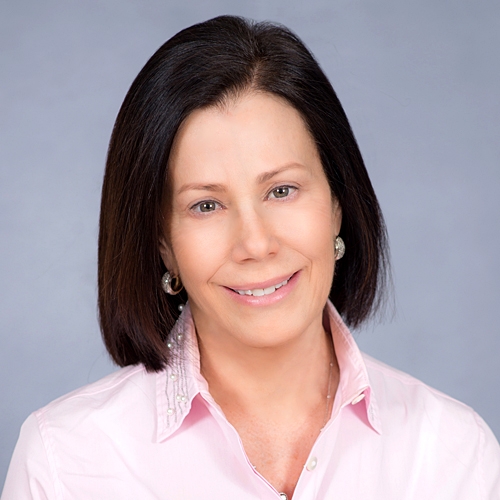
A Sensory Motor Approach to Neuromuscular Re-Education Post Frenotomy

Lori L. Overland, M.S., CCC-SLP, C/NDT, CLC is a licensed speech and language pathologist with her neurodevelopmental certification and certificate as a lactation counselor. Lori is currently working on her IBCLC under the mentorship of Dr. Tina Smilie M.D., IBCLC, and Cathy Watson-Genna IBCLC. Lori’s private practice focuses on infants, toddlers and preschool children with oral sensory-motor/feeding disorders. Lori has co-authored two books: A sensory motor approach to feeding, and Functional assessment and treatment of tethered oral tissue. In addition to her private practice, Alphabet Soup, Lori is a member of the TalkTools® speakers’ bureau, and has lectured on sensory-motor/feeding disorders around the United States and internationally. Lori holds degrees from Hofstra University and Adelphi University.
This session will focus on functional assessment and treatment of tethered oral tissue in the breastfeeding infant. Participants will understand the importance of task analysis of the motor skills to support sucking, prior to referring an infant for a release. Post op treatment has focused on active wound management (Ghaheri, B. 2017) rather than neuromuscular re-education. This approach multidisciplinary approach encourages lactation consultants to partner with body works specialists and speech pathologists to develop the underlying motor skills to support sucking.
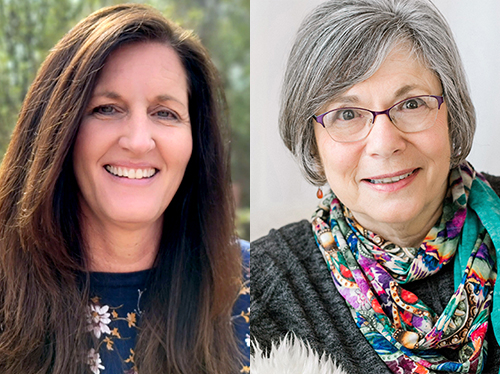

Andrea Herron, is one of the first and longest continuous certified pediatric nurse
practitioners in the United States. After more than 40 years working with breastfeeding
mothers and their babies and teaching parenting classes, she is among one of the
most experienced consultant in the field of lactation. Regardless of the issue or concern,
Andrea has guided thousands of mothers to meet their breastfeeding and early parenting
goals through support groups, lactation consultations, and childrearing education. After
receiving a Master's in pediatric nursing from UCLA, Andrea became an early pioneer in
the back-to-breastfeeding movement, and educated health professionals as an instructor
in the UCLA lactation educator course, all over the United States. Her private lactation practice,
Growing with Baby in San Luis Obispo, California, was used as the national model for
private practices by Women Infant and Children (WIC), the federally funded health and
nutrition program. One of her favorite and most popular topics she teaches through her
Growing with Baby parenting groups is, Understanding Your Infant’s Temperament.
This topic and many of the other topics she teaches are included in her newly released
book, Suckle, Sleep, Thrive: Breastfeeding Success Through Understanding Your Baby’s
Cues. Co-written with Lisa Rizzo.
Andrea has been married to Larry Herron, an orthopedic spine surgeon,
for over 35 years. They are the proud parents of a grown son,
two Labradors, and a cat. The couple reside in Shell Beach,
California.
Lori has worked with high-risk infants/children and their families for 30 years. She graduated from Colorado State University with a degree in Occupational Therapy. In 1996, she became certified in Pediatric Neuro-developmental Treatment. In 2004, she acquired an Advance Practice Certification in Feeding, Eating, and Swallowing.
After graduation, she worked at Simi Valley Hospital, Child Development Center. In this setting, Lori provided occupational therapy services to children age birth to 16 years old with a variety of diagnoses and needs. For the past 17 years she has been providing occupational therapy services to high-risk babies/children in their home and community as a consultant for Tri-counties Regional Center and through her private practice. Her focus has been on feeding difficulties and treating infant developmental delays. In addition, she sees patients privately and jointly with Andrea Herron RN, MN, CPNP, IBCLC, in the Growing With Baby Center. Recently, Lori has joined the NICU team at Sierra Vista Regional Medical Center as a feeding specialist.
Lori lives with her teenage son and husband in beautiful Morro Bay California.
Oral motor coordination and sensory development are two of the most meaningful and critical developmental milestones of the infant. Sucking dysfunction is complicated and may be one of the first signs of abnormal neuro-motor development or other health comorbidities. Too frequently, without a complete assessment, if there are any challenges while feeding at the breast/chest, simple fixes are recommended or bottle feeding is implemented. left untreated these challenges disrupt breastfeeding, leading to weaning. Events during fetal development and birth may be contributing factors to faulty or dysfunctional Infant feeding. It is important to be able to identify one or more of those factors and develop a feeding plan. This may include seeking the insight and intervention of another allied health professional trained in infant feeding.
Andrea Herron RN, MN, CPNP, IBCLC, and Lori Cromer OTR/L, SCFES, have developed a team approach to feeding problems and have worked together for over 15 years. Together they have assessed and treated patients often identifying infants needing ongoing oral motor and developmental interventions. Through power point lecture and case studies they will describe their team approach, emphasizing historical and physical findings that indicate the need for specialized assessment and treatment. Several cases studied will be presented including interviews with the mothers.
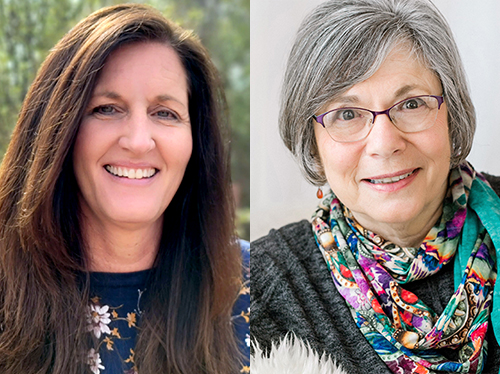
View Details / Enroll
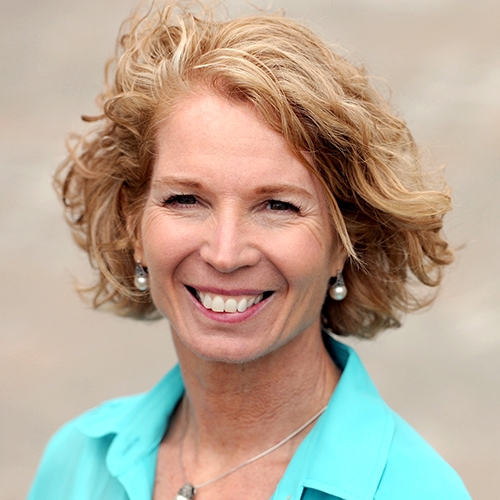
Advancing the Landscape of Neonatal Pain Management

Dr. Marsha Campbell-Yeo, a neonatal nurse practitioner and clinician scientist, is a Full Professor at the School of Nursing, Faculty of Health, Dalhousie University and holds cross appointments in the Department of Pediatrics, and Psychology and Neuroscience. Her Canada Foundation of Innovation funded research lab, MOM-LINC (Mechanisms, Outcome and Mobilization of Maternally-Led Interventions to Improve Newborn Care) is located at the IWK Health Centre. She primarily holds grants examining interventions to improve outcomes of medically at-risk newborns specifically related to pain, stress, and neurodevelopment as well as novel knowledge synthesis and dissemination methods, and digital e-heath interventions aimed at enhancing parental engagement.
She has been recognized for her contributions to the field via numerous awards. She has received an Honorary Doctorate from the Faculty of Medicine and Science from Orebro University, Sweden, and invited as a member of the Royal Society of Canada's College of New Scholars, Artists and Scientists, the recipient of the Inaugural Dalhousie University President's Award for research excellence, was named one of 150 Nurses championing innovation in health for Canada by the Canadian Nurses Association to mark the 150th anniversary of Confederation, a Canadian Institute of Health Research New Investigator Awardee, the Canadian Pain Society 2015 Early Career Awardee, and a Career Development Awardee of the Canadian Child Health Clinician Scientist Program. She is President-Elect of the Pain in Childhood Special Interest Group of the International Association for the Study of Pain, an Executive member of the Council of International Neonatal Nurses, and the Inaugural Chair of the Canadian Premature Babies Foundation Scientific Advisory Committee. Follow her on Twitter @DrMCampbellYeo
Topic: Why Are We Still Hurting Babies: Provider And Parent-led Interventions For The Treatment And Prevention Of Procedural Pain - [View Abstract]
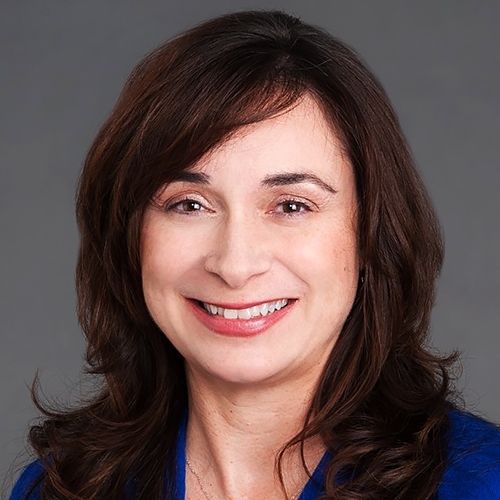

Dr. Tinisha Lambeth is the Neonatal Quality Improvement Coordinator and an Assistant Professor of Pediatrics at Wake Forest School of Medicine. She coordinates quality improvement at Novant Health Forsyth Medical Center NICU as well. She is a Neonatal Nurse Practitioner and received her MSN (2004) & DNP (2014) from Duke University School of Nursing. Over the past 8 years, Tinisha has presented quality improvement work locally, nationally, & internationally. She has co-authored three publications, on the topics of cytomegalovirus, golden hour and the association of different feeding types with necrotizing enterocolitis and growth in premature infants.
Early- and late-onset sepsis is a significant cause of morbidity and mortality in neonates. However, prolonged antibiotic administration alters the microbiome and increases the risk of necrotizing enterocolitis, sepsis, and death in very low birth weight infants and in late preterm and term infants adverse effects include ototoxicity, nephrotoxicity, increased bacterial resistance, and unnecessary costs. Empiric antibiotic therapy for early-onset sepsis and routine Vancomycin usage for late-onset sepsis was a common practice for neonates at this neonatal intensive care unit. Also, antibiotic stewardship in early- and late-onset sepsis management in the NICU posed unique challenges due to variability in provider practices. In this presentation the Model for Improvement quality improvement methodology and three quality improvement projects with a global aim to reduce antibiotic usage will be presented.

View Details / Enroll




